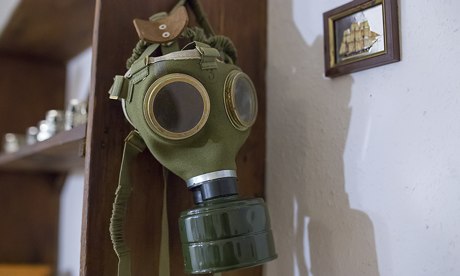
Viktor Oszvald got the idea for Budapest's top tourist activity a year ago while juggling dressed as a clown. His daughter had just been born and that evening, while working at a horror-themed show in a suburban factory, he dreamt of breaking free and had a brainwave.
Now Oszvald is founder of Claustrophilia (claustrophilia.hu), TripAdvisor's top-ranked thing to do in Budapest, and part of a tourist craze sweeping Europe: room escape games. Essentially live-action puzzles (think the Crystal Maze or, for readers of a certain age, Knightmare), the games combine riddles and physical tasks, with the aim being to, well, escape from a room.
Teams of up to five usually get an hour to make a successful exit, paying between £13 and £30 depending on the game. Few succeed. Since late 2012 Claustrophilia has been "beaten" by just 11 teams unaided, of the "many hundreds" Oszvald claims have played. He sometimes takes pity on contenders and hollers hints via a speaker.
Claustrophilia is one of over 30 escape games to crop up in the city since the first, ParaPark (parapark.hu), arrived two years back. Some, like the popular TRAP (Team Race Against Puzzles, trap.hu), use imagery from the likes of ancient Egypt and medieval Europe. ParaPark's dank setting, beneath a pub in the city's rapidly gentrifying Józsefváros district, could have been lifted straight from Saw – the horror movie franchise said to have partly spurred escape games' popularity. Other influences include TV shows like Survivor, but most claim the format emerged from point-and-click PC games of the early 1990s.
Claustrophilia's own theme lies somewhere between steampunk and Twin Peaks, working in a thinly woven backstory of an old eccentric's enigmatic bequeathment to explain the cramped assortment of props and furniture – ranging from gas masks and coal stoves to Victorian maps and pork-pie hats. It's spooky but never scary, and held in an apartment within a disused building (the precise location is shared only upon booking).
Like the famous ruins pubs, escape games have flourished in Budapest, thanks to an abundance of pretty-but-dilapidated apartment blocks that owe much to a violent, tragic past, wedged between fascism and communism. Rents in the centre of town cost as little as £200 per month, and property rental site Housetrip recently reported the destination its cheapest.
Buoyed by their successes, many games companies are now branching out: TRAP has a franchise in Berlin's fashionable Friedrichshain district (trapberlin.com), while Oszvald is eyeing several destinations in western Europe. Meanwhile, the games' popularity at home continues to soar. Most people come to Budapest for the architecture or the nightlife. Many more are coming simply to escape.

